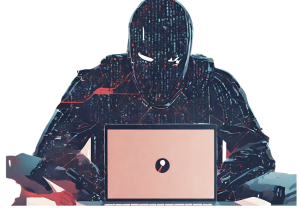 Tranquil Palau faced an unprecedented challenge recently when its financial management system fell victim to a cyberattack. The Ministry of Finance was compelled to revert to manual payroll processing as a result, marking the first major cyberattack and ransomware incident in the country’s history, according to President Surangel Whipps Jr.
Tranquil Palau faced an unprecedented challenge recently when its financial management system fell victim to a cyberattack. The Ministry of Finance was compelled to revert to manual payroll processing as a result, marking the first major cyberattack and ransomware incident in the country’s history, according to President Surangel Whipps Jr.
The situation escalated when the DragonForce ransomware operation claimed to have stolen over 21GB of data from Palau’s systems, threatening to leak it by a specified deadline. However, officials from the Palau government have dismissed these claims while engaging in negotiations with the perpetrators, as reported by The Record, a news outlet associated with cybersecurity firm Recorded Future.
Ransomware attacks, such as the one experienced by Palau, are notorious for encrypting or locking victim data, essentially holding it hostage until a ransom is paid. President Whipps Jr. expressed concerns that the attack may have originated in Malaysia, with potential ties to companies in Russia or China, underscoring the complex and global nature of cyber threats faced by nations today.
The ramifications of the cyberattack were felt across Palau, as the Ministry of Finance’s National Treasury notified all government employees that standard deductions for social security tax, national health insurance, pension, and income tax would be withheld from their salaries. However, employees were still expected to make other voluntary payments, such as bank loans and utility bills, despite the disruption caused by the attack.
As of late last month, efforts to restore the financial system were still ongoing, highlighting the severity and persistence of the cyber threat. President Whipps Jr. addressed the public during a press conference, emphasising the gravity of cybersecurity risks and referring to it as “a different type of warfare.” He stressed the urgent need for a comprehensive cybersecurity plan to protect Palau from future attacks, recognising the vulnerability not only of government financial systems but also of critical infrastructure, including public utilities, healthcare systems, and private businesses.
In response to this emerging threat, President Whipps Jr. called for assistance from key allies such as the United States and Taiwan, recognizing the importance of international cooperation in combating cyber threats and safeguarding Palau’s security and prosperity in the digital age.



